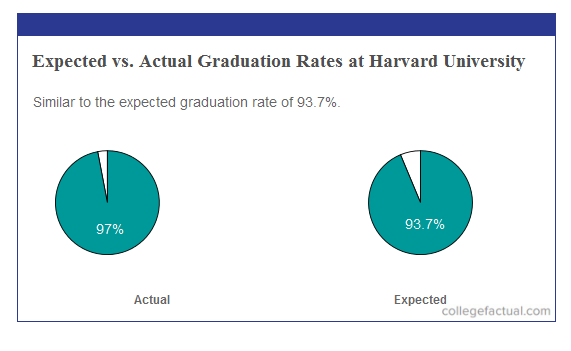Graduation Rates Don’t Tell the Whole Story
/One of the first things a student might look at to determine the academic integrity of a college is the college’s graduation rates. This seems like a no-brainer. Colleges were doing a great job graduating students deserve recognition. And who wants to sacrifice four or more years of their life at a college where they are unlikely to graduate on time or at all? However, graduation rates can be deceptive. One of the main problems with graduation rate data is that it only measures one segment of the student population: first time degree seekers.
Says Patricia McGuire in the Washington Post:
…the graduation rate does not include transfer students (some studies show that more than one-third of all undergraduates transfer to one or more schools) or part-time students (46 percent of all undergraduates nationwide), or students who have elongated their degree timetable by stopping out for work and family obligations.
In addition, the graduation rates that are measured can be manipulated. Some colleges intentionally only accept students who are high achievers and are highly likely to graduate in four years. This is true of most elite universities in the U.S. where you cannot get in without extremely good grades and high SAT or ACT scores.
Comparing Actual vs Expected
It could be more telling to compare a college’s actual graduation rate with their “expected” graduation rate. That is, are colleges graduating students in about the time you would expect given their grades? Are they better or worse at graduating students when the academic standing of the students are taken into account?
For example Harvard has an extremely impressive overall graduation rate of 97%! But if you compare that to their “expected” graduation rate based on the caliber of the students who attend, they are performing about what would be expected.
Now compare that to Syracuse University, a good school but considerably less prestigious than Harvard. Their overall graduation rate is 81.7%, but they are actually graduating students at a much higher rate than one would expect when the academic achievement of the students is factored in. Based on how similar students do at other institutions, we would have expected a 6-year graduation rate of 68.1%. This evidence suggests Syracuse is doing a lot to help their students perform beyond expectations.
What do Low Graduation Rates Mean?
Despite the problem with graduation rates, they continue to be a key metric for many college rankings, and they can still provide some valuable insight into how a college is performing. It is important to consider all the data available to you, while understanding the limitations.
Graduation rates, while flawed, are not meaningless, and low graduation rate could be a red flag that signals you to take a deeper look. What is the reason for the low graduation rates? Do a lot of students transfer to another school, or do they drop out altogether? Does the college have a mission of purposefully accepting high risk students (if that is the case, are they also offering a lot of financial aid or keeping costs low to not over-burden students who are likely to drop out)?
Low graduation rates by themselves don't always mean a bad school. And high graduation rates don't necessarily mean the school does the best job improving a student's situation.
Graduation rates are one element of a larger picture. Other important data points to consider include the student loan default rate, the average starting salaries of graduates, or how many graduates have found jobs within a year. Students should also compare college costs carefully, and consider other areas that may be important to them, like student to faculty ratio, athletics or campus diversity.
Choosing a college is not a one-size-fits-all scenario. Students should be aware of their needs, do their research, and carefully plan visits to colleges of interest. And once they are at their chosen college they should make every effort to graduate in four years! The more time spent in college the more it will cost them.
Make the right college decision the first time!









